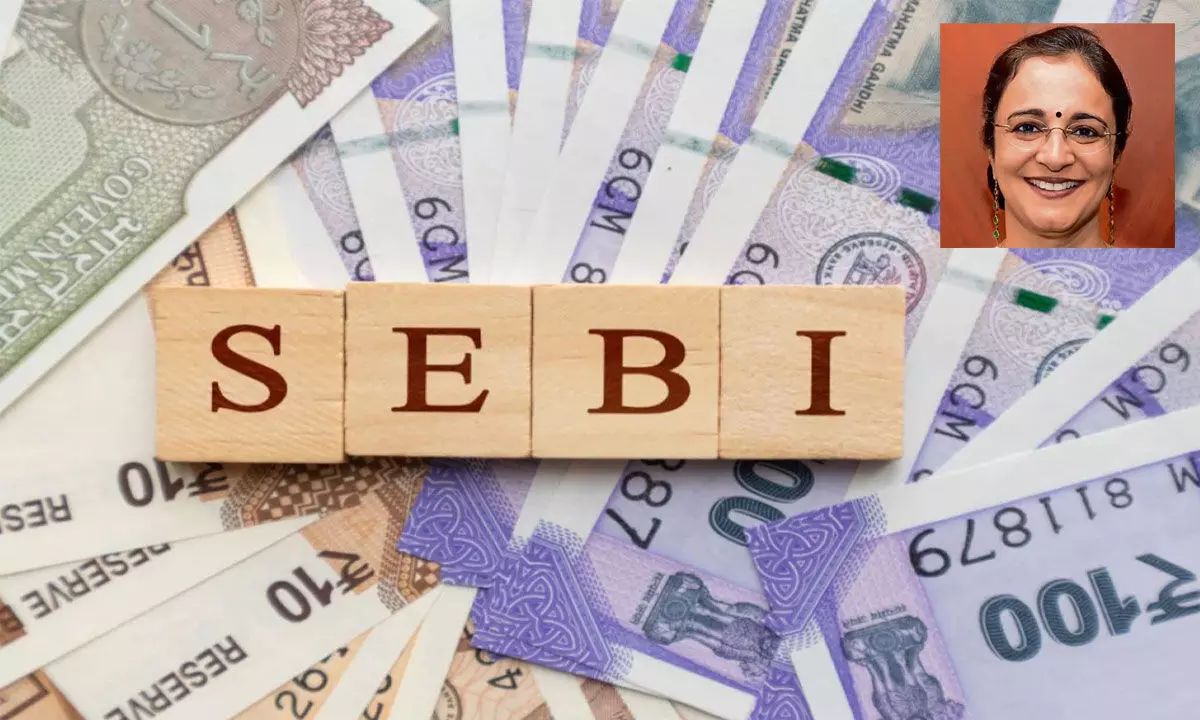Phasing out shares buyback via bourses
Sebi board approves measures to boost governance at stock exchanges, other mkt infra institutions; regulator has chosen the tender offer route for share buyback as the present mode is vulnerable to favouritism
image for illustrative purpose

Mumbai: Markets regulator Sebi on Tuesday decided to gradually phase out buyback of shares by companies through the stock exchange route and also approved steps to boost governance at stock exchanges and other market infrastructure institutions.
These were among the proposals approved by Sebi board during its meeting on Tuesday. Sebi Chairperson Madhabi Puri Buch said the regulator has chosen the tender offer route for share buyback as the present mode is vulnerable to favouritism. "This is a glide path and will lead to the phasing out of the present buyback mode (through stock exchange route)," she told reporters here. Currently, for share buyback, companies have both the options of stock exchange and tender offer. Besides, Sebi board has decided to reduce time taken for registration of FPIs to facilitate ease of doing business. Norms will also be amended to facilitate sustainable finance in the country and curb 'greenwashing'.
Sebi bars Securekloud, its directors
Sebi has barred Securekloud Technologies Ltd (STL) and its three directors from the securities markets for a period ranging from one to three years and imposed total penalties of Rs 10 crore on them for allegedly misrepresenting the financials of the company. The Sebi order has also prohibited three company directors -- Suresh Venkatachari, RS Ramani and Gurumurthi Jayaraman -- from being associated as a director or key managerial personnel in a listed company or an intermediary from six months up to one year. Sebi slapped a fine of Rs 4 crore on STL, Rs 3 crore on Venkatachari, Rs 2 crore on Ramani and Rs 1 crore on Jayaraman, according to the order.
They have been directed to pay the penalty within 45 days, the Securities and Exchange Board of India (Sebi) said in its final order passed on Friday. Pursuant to the receipt of several complaints alleging financial misreporting/irregularities by promoters and management of STL and the forensic audit report by Deloitte, which brought out various irregularities indicating that suspected offences including fraud have been committed in the company, received by the regulator in December 2019. Thereafter, Sebi initiated an investigation into the affairs of the company for the period covering the financial years 2017-18 to 2020-21.
The focus of the said investigation was broadly to investigate the manner of alleged misstatement in the books of accounts of the company. In its probe, Sebi found that there was a misrepresentation of the financial statements of STL, the consolidated revenue of the firm rose manifold within a short span of time i.e from Rs 271.93 Crore in FY 2015-16 to Rs 850.39 crore in FY 2018-19. Also, once the STL stopped booking fictitious revenue (from 2019-20 onwards), its revenue decreased to Rs 386.43 crore during FY 2019-20.
Further, the company also inflated its balance sheet size by capitalizing fictitious expenditure towards the development of software, resulting in its balance sheet size increasing from Rs 44.76 crore as on March 31, 2013, to Rs 997.99 crore as on March 31, 2019. After impairment and other write-offs, the balance sheet size of the Company reduced from Rs 997.99 crore to Rs 242.82 crore in a single financial year, Rs 755.17 crore was wiped off from the balance sheet of the company, as per the order. With respect to misrepresentation, the investors were influenced by such manipulated financial statements and purchased the company's shares, which created a misleading appearance with respect to the share price of the company, thereby resulting in the manipulation of the share price of STL.

